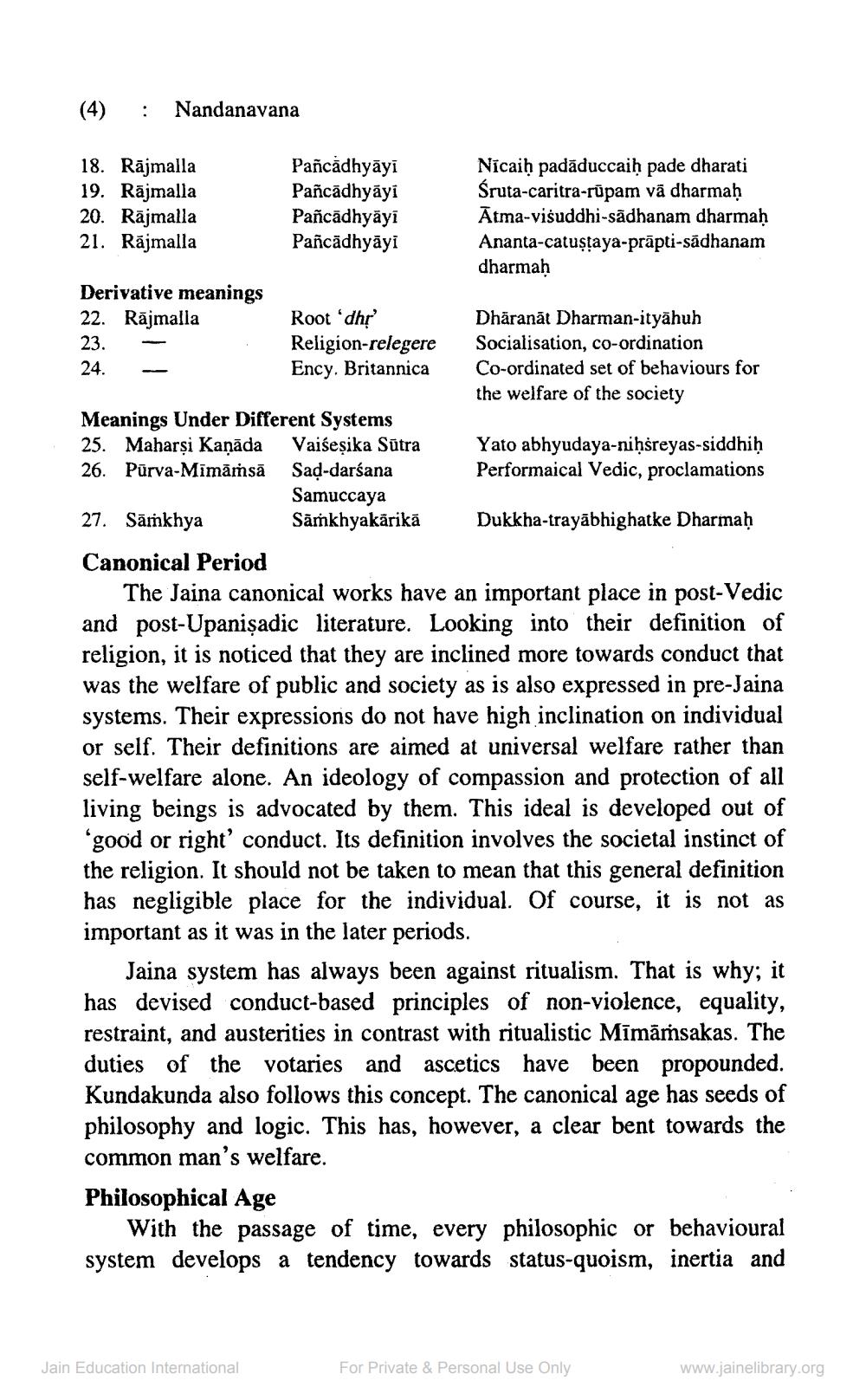________________
(4)
: Nandanavana
18. Rājmalla
Pañcădhyāyi Nīcaiḥ padāducсaih pade dharati 19. Rājmalla
Pancādhyāyi Sruta-caritra-rūpam vā dharmaḥ 20. Rājmalla
Pancadhyāyi Ātma-visuddhi-sadhanam dharmaḥ 21. Rajmalla
Pañcādhyāyi Ananta-catuștaya-prāpti-sādhanam
dharmah Derivative meanings 22. Rājmalla
Root 'dhr
Dhäranāt Dharman-ityāhuh 23.
Religion-relegere Socialisation, co-ordination Ency. Britannica Co-ordinated set of behaviours for
the welfare of the society Meanings Under Different Systems 25. Maharşi Kanāda Vaiseșika Sūtra Yato abhyudaya-niņšreyas-siddhiḥ 26. Pūrva-Mimāṁsā Sad-darśana
Performaical Vedic, proclamations
Samuccaya 27. Sāmkhya
Sāṁkhyakárikā Dukkha-trayābhighatke Dharmaḥ Canonical Period
The Jaina canonical works have an important place in post-Vedic and post-Upanişadic literature. Looking into their definition of religion, it is noticed that they are inclined more towards conduct that was the welfare of public and society as is also expressed in pre-Jaina systems. Their expressions do not have high inclination on individual or self. Their definitions are aimed at universal welfare rather than self-welfare alone. An ideology of compassion and protection of all living beings is advocated by them. This ideal is developed out of 'good or right' conduct. Its definition involves the societal instinct of the religion. It should not be taken to mean that this general definition has negligible place for the individual. Of course, it is not as important as it was in the later periods.
Jaina system has always been against ritualism. That is why; it has devised conduct-based principles of non-violence, equality, restraint, and austerities in contrast with ritualistic Mīmārsakas. The duties of the votaries and ascetics have been propounded. Kundakunda also follows this concept. The canonical age has seeds of philosophy and logic. This has, however, a clear bent towards the common man's welfare. Philosophical Age
With the passage of time, every philosophic or behavioural system develops a tendency towards status-quoism, inertia and
Jain Education International
For Private & Personal Use Only
www.jainelibrary.org




